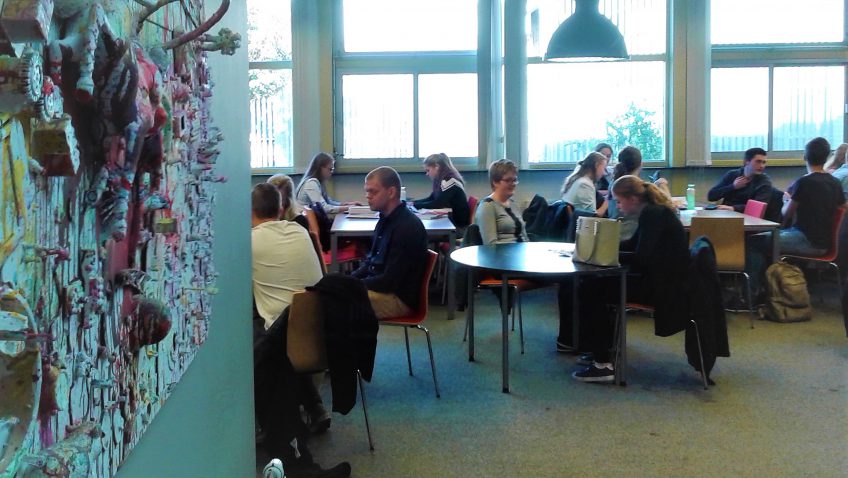The Education Council of the Netherlands recently called for a ‘decompartmentalization’ of the study programmes. Starting the upcoming year the minister Van Engelshoven of OCW (Ministry of Education, Culture and Science) will come to Windesheim to see how the challenge can be dealt with. Other Universities of Applied Sciences know the way to Zwolle (and Almere) by now.
The Teachers College exists of two phases. The freshman phase lasts half a year. During this year students have their internship at a secondary/primary school one day per week, and another day at a high school . After this they have to choose: do I continue with PABO (Teacher Education in Primary Schools) or will I choose one of the other Teacher Education programmes, or a combination of both? That last one is possible too. Then the craftsman phase starts, this lasts two and a half years. In this phase they will focus on specializing their professional knowledge, but also on their personal development. This is because the emphasis isn’t just on the professional knowledge, but also on the personal development, emphasizes teacher Alwin Truin:
“Students should be able to set goals for themselves and learn how to turn these into a concrete approach. The professional knowledge and personal development, these we read in the portfolios that they have to hand in regularly.”
The Teachers College joins in with the recent developments in education. For example, during the past few years there has been a lot of attention for the ’10-14’ schools, for children between the ages of ten and fourteen years old. Truin: “This way there will be more attention for the individual qualities of the pupils.” There are currently twelve such schools. In Zwolle there is one; there needs to be one in Almere too. The Teachers College is intimately involved in this. Students have helped with designing the education in Zwolle, and they now have their internship there too.
The work field is positive about the graduates, thus Truin: “What I hear is that our students take initiative, are able to think critically and have the will to develop themselves- and they can substantiate this too. Students will, I think, mainly say that the study programme is quite demanding.”
Anne Badine van Vaals is currently in the craftsman phase. She discovered Teachers College on the website of Windesheim – and was sold instantly: “The PABO (Teacher Education in Primary Schools) seemed like fun but I kind of wanted to become a history teacher too. At TC I could still postpone my choice and simultaneously gain experience. I quickly learned that not every educational identity fits you well. I also learned a lot by teaching several subjects. In the end I chose history.” And was it intensive?
“The first year wasn’t; I was used to quite a lot from VWO (pre-university education). What I wasn’t used to were the long days, studying at several locations and having my internship too. And I really miss the structure. So I had to learn to deal with uncertainty and that I found to be intensive.”
The recent pressure on reorganising the PABO- and LVO-education has led to other Universities of Applied Sciences lining up to behold the ‘Zwolse model’ (Zwolle’s model) with their own eyes: “Lately there have been visiting a lot of delegations to see how we have reorganized the education. And you can also see here within Windesheim that the education of the teacher courses and that of the PABO are growing in our direction.”
Explanation for international students: Secondary/primary school in the Netherlands is for children 4/5 years old up to 11/12 years old. Highschool in the Netherlands goes up from 11/12 years old up to 16/17/18 years old.
